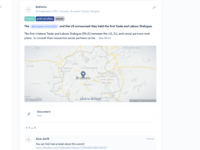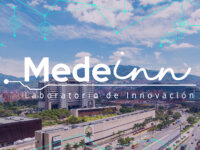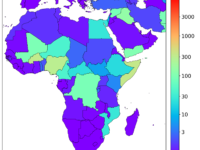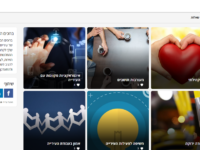Anticipate is a tech-enhanced tool for context monitoring and early warning of conflict. Anticipate fights bias in analysis by encouraging analysts to be forward-looking and removing echo-chambers. It hosts data collection, political-economic analysis, and anticipation in one place. As such, it is a one-stop shop for the public sector to develop policy.
Innovation Tag: Artificial Intelligence (AI)
e-insan is an integrated platform, offering a wide range of services based on equal opportunity and accessibility for employment and lifelong professional development. In addition, it supports data-driven decision-making processes. The platform provides job and internship opportunities, online training for employees, and many contents of career development for youth and creates a talent pool with verified data. Blockchain-supported e-insan increases efficiency and transparency in HR management.
Case Study
Turning Anticipatory Regulation from Principle to Practice: The Journey of the Regulatory Horizons…
Traditional ways of regulating are not able to keep pace with technological disruption, shifting sectoral boundaries, new types of problems and the opportunities innovation can bring. The Regulatory Horizons Council (RHC) is an independent expert committee set up the UK Government that identifies the implications of technological innovation, and provides government with impartial, expert advice on the regulatory reform required to support its rapid and safe introduction.
Most Brazilian metropolises have a transport network operated by a private company which makes it difficult for transport authorities to have a bright view of the public transport functioning. TRANCITY is a public transport monitoring dashboard which integrates different sources of data, such as bus location, ticketing and cameras, providing real time and historical information that supports management, planning and the operation of public transport networks, with data driven evidence.
MiLAB - Govtech and Public Impact Laboratory, aims to contribute on the digital transformation acceleration of the public sector, by connecting it, through collaboration and open innovation strategies, with start-ups and SMEs that uses emergent technologies and innovative methodologies. MiLAB successfully specialized its activity within the public impact ecosystem, attending the high demand and global tendency of rely on digital innovator among the Government.
Case Study
Safeguarding through the Moderator Proposition – The early identification of children at risk
Safeguarding children at risk of abuse requires effective multiagency working throughout safeguarding agencies. Current arrangements have proved inadequate and have failed to deliver on the imperative for integrated working. The Moderator Proposition fully resolves these outstanding operational needs. Moderator employs AI technology, with an integrated organisational 'construct', to assemble a comprehensive 'picture of events' for conjoined working across agencies. It is an holistic innovation.
MedeINN arose from the need to innovate in the government sector, in a city that had been developing its innovation capabilities in all other sectors. For this reason, and under Innovative State premise, we seek to connect the Mayor's Office of Medellín´s challenges with entrepreneurs and researchers capacities. This has been achieved after a redesign of a Public Procurement for Innovation methodology, which enables Open Innovation in the government sector.
The Environment Agency has a responsibility to protect communities from flood and coastal risks. In the past, the agency has struggled to scale their public engagement and reach their diverse audiences, while also retaining a local relevance. Hello Lamp Post was brought on to provide an interactive, live 24/7 conversational channel to educate and inform the public on flood safety, in high-risk locations around the South West of England and Newcastle.
The Violence Early-Warning System (ViEWS) is a publicly available data-driven forecasting system at the frontier of research that generates monthly predictions of conflict fatalities up to 36 months ahead – throughout Africa and the Middle East. The project launched in 2017 to help policy-makers and practitioners plan anticipatory action and humanitarian interventions with a transparent and evidence-based approach. It is based at Uppsala University and Peace Research Institute Oslo.
Strategic planning has turned into bureaucracy circus, without really moving the needle. The City of Ashdod has pioneered a new strategic planning model, in collaboration with Insights.Us. The new methodology enables city leadership to define key measurable outcomes, harnessing cross-silos action plans. The digital platform was designed to celebrate success stories, and connect the community, allowing an inclusive whole-of-city approach.






